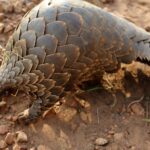Pangolins in Thailand are amazing! They have distinctive armored scales and can roll up into a tight ball to protect themselves. They live in various habitats across Thailand and play an important role in the ecosystem.
The diet of Pangolins in Thailand is interesting. They mainly eat ants and termites, using their long tongues. This helps keep the population of these insects down and is good for the environment.
These creatures also have an incredible defensive mechanism. When threatened, they curl up into a ball, exposing only their tough scales. This makes them almost impossible for predators to attack.
Pro Tip: If you see a pangolin in its natural habitat, don’t get too close. It’s best to observe from a distance, to ensure their safety and wellbeing. Plus, you’ll get to appreciate their real-life superhero powers!
Key Takeaways
- Pangolins are highly endangered species found in Thailand.
- Thailand is a major hub for illegal pangolin trafficking.
- The demand for pangolin scales and meat in China and Vietnam is driving the illegal trade.
- The Thai government has taken steps to combat pangolin trafficking, but more needs to be done.
- Public awareness and education are crucial in reducing the demand for pangolin products.
- Collaboration between governments, law enforcement agencies, and conservation organizations is essential in protecting pangolins.
- Sustainable alternatives to pangolin products should be promoted to reduce the demand for illegal trade.
- Efforts to protect pangolins in Thailand should be supported and encouraged by the international community.
Overview of Pangolins

Marvelous pangolins can be found in Thailand. They possess unique features and behaviors that set them apart. Here’s an insight into them:
- Mammals with scaly armor and long tongues.
- Feed on ants and termites, using their sticky tongues to catch them.
- Great climbers and can curl into a tight ball when threatened.
- Have a keen sense of smell for locating prey underground.
More so, they have extra special features:
- Scales made of keratin, like human hair and nails.
- Long claws for digging burrows for shelter.
- Females give birth to one or two young, carried on their tails until they can survive solo.
Sadly, they are the most trafficked mammals in the world, despite CITES laws protecting them. But here in Thailand, they are the Guardians of the Forest. Mosquitoes better watch out!
Importance of Pangolins in Thailand
Pangolins, enthralling critters native to Thailand, have a huge part to play in the environment. Noted for their one-of-a-kind traits and placid behavior, they make a great contribution to sustaining a balanced ecosystem. These introverted, nocturnal animals are vital in regulating the population of bugs and ants, thus avoiding crop destruction and ensuring agrarian success.
Moreover, pangolins possess special qualities that make them highly treasured both ecologically and financially. Their scales are desired for their supposed medicinal capabilities, making them a lucrative target for illegal poaching. This awful truth has caused a considerable decrease in pangolin populations lately.
To protect these vulnerable species, the Thai Government has taken a number of conservation steps. These include creating secured regions and implementing strict laws against poaching and smuggling. Also, educational initiatives have been commenced to educate local populations regarding the importance of maintaining pangolins.
Despite all these efforts, issues remain. Pangolin trafficking is still a continuous danger due to great demand in foreign countries. In response, wildlife authorities are cooperating with police forces to fight this unlawful trade effectively.
In a momentous incident, a band of devoted conservationists stopped a massive load of pangolins on their way to foreign markets. With careful planning and rapid action, they saved countless pangolins from their dire fate while catching those responsible for this immoral crime against nature.
This occurrence is a reminder of the continuous combat to secure pangolins from extinction within Thailand’s limits. Securing these impressive creatures is not only essential for keeping up biodiversity but also for upholding moral values that dictate our accountability towards all living beings that inhabit this world.
Pangolin Species in Thailand
Sunda, Chinese, Indian, Malayan, Javan, and Palawan pangolins roam the land of Thailand. Rare and unique pangolin species, such as the White-bellied and Long-tailed, also call this place home.
We must appreciate and protect the diverse habitats of pangolins in Thailand. Join us in saving these extraordinary creatures for generations to come. Seize this chance – make a difference!
Pangolins in Thailand have made themselves known to locals and can be found in the forests, showing that even these scaly animals can be hidden in plain sight.
Habitat and Distribution
Pangolins, aka scaly anteaters, are fascinating creatures. Let’s explore where they roam! They inhabit various regions in Asia and Africa, in habitats such as forests, grasslands, and savannas. They thrive in areas with lots of vegetation and are great climbers. Distribution-wise, they range from Southeast Asia’s tropical rainforests to Africa’s semi-arid regions.
These critters have one unique adaptation: scales made of keratin, like our fingernails. These armor-like scales protect them from potential threats. Sadly, pangolins are the most trafficked mammals in the world, with an estimated 1 million poached in the past decade. Conservation efforts are urgently needed to save these incredible creatures for future generations.
Behavior and Adaptations

Pangolins, native to Thailand, have unique adaptations that make them extraordinary. They use their strong claws to dig deep into the ground and create underground dens. Plus, their tails provide balance when climbing trees or walking. Pangolins have an acute sense of smell, so they can locate insects hidden beneath layers of soil.
When threatened, they curl up into a tight ball and protect themselves with their scales. They also emit a foul-smelling odor from glands near their anus.
Unfortunately, pangolins are highly sought after for their scales and meat. This has fueled illegal wildlife trade and poaching, which is devastating pangolin populations. Therefore, stricter regulations and raising awareness about their conservation status are necessary to protect these incredible animals.
Illegal Wildlife Trade and Poaching
Illegal wildlife trade is the buying and selling of protected wildlife in breach of national and international laws. This hidden market puts at risk animals like pangolins and sabotages conservation efforts. Poaching is the unapproved killing or capturing of wild animals, mostly for their valuable body parts. The demand for pangolin scales, meat, and other body parts drives this ruthless pursuit and leads to these creatures’ extinction.
The consequences of illegal wildlife trade and poaching are far-reaching on ecosystems. As keystone species like pangolins disappear from their natural habitats, it disturbs the balance and endangers the total biodiversity of Thailand.
High-tech smugglers are taking advantage of legal deficiencies and corrupt officials to support these acts. In spite of global treaties and domestic regulations prohibiting such activities, they still occur due to high demand in regional markets.
Notably, the scale of illegal wildlife trade and poaching in Thailand has drawn global attention lately. Law enforcement is taking extra steps to battle these criminal activities by raising surveillance, raiding trafficking rings, and working with international organizations.
To demonstrate the seriousness of this issue, an event in 2019 serves as a reminder. Thai authorities seized over two tons of smuggled pangolin scales valued at an estimated $800 million. This incident showed the huge network behind this illegal trade and highlighted the need for tougher regulations and wildlife conservation measures.
Government Regulations and Protection Measures
Thailand has implemented government regulations and protection measures to conserve pangolins. These measures are to safeguard the creatures and their habitats. Here is a breakdown:

Wildlife Protection Act: Thailand provides legal protection to pangolins and forbids their hunting, trade, and possession without permits. If violated, severe penalties such as fines and imprisonment await.
Protected Areas: Conservation zones have been created in Thailand for pangolins. Human activities that may harm them or their habitats are restricted. These areas provide a safe haven for them to thrive.
International Cooperation: Thailand collaborates with international organizations and neighboring countries to combat illegal wildlife trade, including pangolin trafficking. This includes sharing intelligence, conducting joint operations, and implementing stricter border controls.
To raise awareness about conservation, educational campaigns, and outreach programs are organized. People are informed about the ecological significance of pangolins and encouraged to act responsibly towards them.
Tip: If you spot a pangolin in distress or suspect illegal trafficking, report it to the relevant authorities or wildlife rescue organizations. Your quick action can save these creatures.
The success of Pangolins Thailand shows change is possible for everyone.
Success Stories and Rehabilitation Centers
Rehab centers provide specialized medical care for pangolins. Treatments for injuries and illnesses, as well as a suitable environment replicating natural habitats, help them regain strength and skills. The staff works hard on physical therapy, feeding programs, and behavioral training to rehabilitate them.
When recovered, the pangolins are released back into the wild with ongoing monitoring. There are also educational programs and awareness campaigns to protect them and their habitats.
Partnerships with local communities and research collaborations with universities are part of these efforts, along with innovative techniques to track released pangolins’ movements in the wild.
One story to remember is that of Pango, a female Sunda pangolin found injured due to poaching. She was taken to a rehab center and received intensive care. Thanks to the hard work of the staff, Pango recovered and learned survival skills during her stay. Once released, she was reintroduced to a protected forest area.
Successful stories from rehab centers show how human intervention can make a difference in safeguarding endangered species. It’s essential to support and expand these efforts, for a better future for pangolins.
Frequently Asked Questions
1. What is a pangolin?
A pangolin is a unique mammal native to Africa and Asia. It is known for its unique scales covering its body and its ability to curl up into a ball for protection.
2. Are there pangolins in Thailand?
Yes, Thailand is home to several species of pangolins, including the Sunda pangolin (Manis javanica) and the Chinese pangolin (Manis pentadactyla).
3. Where can I see pangolins in Thailand?
Pangolins are elusive creatures and spotting them in the wild can be challenging. They are found in a variety of habitats including forests, grasslands, and even agricultural areas. National parks such as Kaeng Krachan and Khao Yai might offer a chance to catch a glimpse of them.
4. Are pangolins endangered in Thailand?
Yes, pangolins are considered endangered in Thailand. They face numerous threats, including habitat loss, poaching for their scales and meat, and illegal trafficking.
5. Are pangolins protected by law in Thailand?
Yes, pangolins are protected by law in Thailand. They are listed as a protected species under the Wild Animal Reservation and Protection Act, which prohibits their hunting, capturing, trading, and possession without proper permits.
6. How can I help conserve pangolins in Thailand?
You can contribute to pangolin conservation efforts by supporting organizations working to protect and rehabilitate pangolins, spreading awareness about their plight, and avoiding purchasing pangolin products or participating in illegal wildlife trade.
Conclusion
Concerning pangolins in Thailand, a worrying situation is evident. These unique animals face many problems, demanding urgent attention.
First, their scales are much desired for traditional medicine, especially in nearby countries. This fuels poaching and trafficking, causing population decline.
Second, deforestation and urbanization reduce their habitats. Pangolins have difficulty finding places to survive and breed.
Third, most people are unaware of their vital role in ecosystems. Education and outreach are key for their conservation.
A significant event was the CITES agreement of 2019, which aimed to stop the illegal trade of endangered animals, such as pangolins. International collaboration offers hope for successful conservation efforts.




